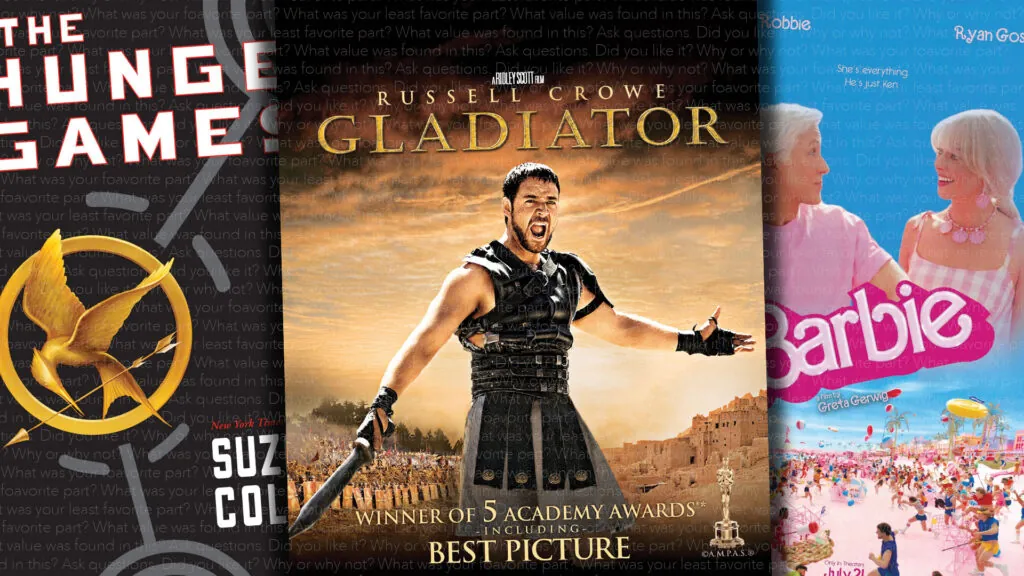
Entertainment
You might relate to Mary Bennet, but you’re not supposed to imitate her
Mary Bennet gets a lot of good press. In Pride and Prejudice, she is one of the heroine Elizabeth Bennet’s three younger sisters, and she’s known as the bookish one. Maybe because readers of Pride and Prejudice may be bookish as well, we tend to feel the story overlooks her, so many a blog post, and articles, and even sequel novels have been written bemoaning this. This is in spite of the plentiful evidence that Jane Austen herself did not like her. Despite Mary being bookish, Austen did not mean to point to her as a character that we should imitate.
This is astonishing, as the bookish girl is a pretty strong stereotype for female heroines by now – just think of Belle in Beauty and the Beast, Hermione in Harry Potter, or Jane Eyre. All of them readers, some a bit know-it-all, but all with a heart of gold. The character of Mary Bennet is swimming directly against the current in this matter.
And readers relate to Mary – many of us know what it feels like to be “plainer” than those around us, to feel less intelligent even though we’re desperately trying to appear smart, to feel like no more than a background character in someone else’s story. Who can’t relate to wanting some distinction of your own, even if it’s not beauty? We like books about bookish characters proving themselves because we’re reassured that our bookishness will not be our undoing, and that someday those around us will realize that our bookishness has value.”
But Jane Austen does not give us that satisfaction with Mary.
Evidence of dissatisfaction with Mary’s story can easily be found. Both The Guardian and The Atlantic have written articles about the proliferation of sequels about Mary Bennet, which include: The Independence of Miss Mary Bennet, The Forgotten Sister, The Pursuit of Mary Bennet, and of course, one called There’s Something About Mary, Bennet. Many, many authors have seen potential in her character, and clearly many readers want to read about that potential.
So what are Mary’s faults, according to Jane Austen?
It’s not that she’s bookish and plain. It’s that she appears to read only in order to lecture others about what she’s read. She appears to practice music only in order to draw attention to herself with it. As a result, neither her speeches on the books she reads nor her performances on the piano avoid sounding “affected.”
“Mary had neither genius nor taste; and though vanity had given her application, it had given her likewise a pedantic air and conceited manner, which would have injured a higher degree of excellence than she had reached.”
In other places Austen defends the reading of books and applying oneself to improving oneself, but Austen never vindicates these aspects of Mary. She really doesn’t do much with her character plot-wise, and demonstrates that her way of being is just as “silly” as the younger sisters Kitty and Lydia’s way of living. Mary does not get a character arc or much development at all. She has no romantic events come her way either.
I don’t think Jane Austen was against bookish girls. I don’t think she was subtly fighting against education for women, or against women having an opinion. I think she had a more complex idea here.
What Jane Austen is trying to show is how one trait, overemphasized and over-developed, can be ridiculous.
It’s kind of amazing how, despite all of Mary’s deficiencies in beauty and intelligence, her self-absorption is still derided as vanity by Austen. This is an important point! We like to think if we haven’t been given all the advantages other people have, we’re protected from vanity. We’re given a free pass to focus on ourselves, because after all, we aren’t as advantaged as everyone else. People should recognize and encourage us in what we do have.
However, this very lack of humility can prevent improvement in the areas we might have relative strength in! It’s Mary’s air of condescension that makes her sisters dislike her speeches more – no one likes to be talked down to. Her piano-playing, while better than some, is less pleasant to listen to because of how conceited she makes it sound – she’s all-too-aware she is more skilled than Elizabeth. Her vanity in these things prevents her from using her gifts in a way that would actually give pleasure to other people (and Elizabeth proves you can give some pleasure to a listener even without being the best piano-player ever). And her vanity likely prevents her from even seeing the ways her gifts fall short of what she thinks they are. She doesn’t improve in the areas of attitude and mannerisms because she doesn’t think she needs to.
Love is more excellent
Does this mean she deserves to be laughed at by her sisters, or shamed by Mr. Bennet at the Netherfield ball? Of course not. Mr. Bennet’s treatment of her, in particular, is meant to highlight his shortcomings as a father and his insensitivity to what might improve his daughters’ characters.
Now, if Mary actually is meant to have a character arc, perhaps one of Elizabeth’s or Jane’s attempts to rein in their younger sister’s vanities would sink in. As it is, we as readers are only left with the impression her vanity leaves on us, with the implication it is a warning – do not get so consumed in creating your own space for your own gifts that you blind yourself to how useless they are to anyone outside yourself. This is basically the opposite of every “find yourself” message in novels and media that is so common.
Because, what is the reason we develop our gifts and talents? God did make each one of us unique, and he didn’t intend for some gifts to be laughed at or looked down upon. But He does have a purpose for our gifts. In 1 Corinthians 12, Paul talks about the body and how each member belongs, even the parts that seem weaker. Yet Paul goes on in 1 Corinthians 13 to talk about a “more excellent way” – love. Our gifts are to be used in love, to build others up. No one should look down on another, and at the same time those who feel “less honorable” should remember their role is indispensable because it builds up others, not just themselves.
We can draw inspiration from another Mary in Scripture, who humbly sat at Jesus’ feet to learn from Him. She was interested in study, to the extent she seemingly neglected other practical tasks. It’s not study that is the problem. But her attitude of humility, and her interest in things that really mattered, made her different from her Austen namesake. She focused her eyes on Jesus and what He called her to do, rather than her own motivations.
A moral of the story
So perhaps for us bookish types, we can take the message that there’s nothing wrong with being bookish, but it’s our attitude to others as a result that can be the problem. Even if others don’t understand us, it doesn’t give us justification to feel superior to them. Even if we are actually better in one area than someone else we know, rubbing that in everyone’s faces will not help anyone else, and can even be destructive to ourselves.
But then again, this is not meant to be the main message of the novel – Mary is merely one of dozens of Austen side-characters that demonstrate how one over-developed characteristic renders one ridiculous. It’s Darcy and Elizabeth who get character arcs, and who change throughout the novel. Austen uses their story to tell her message. Though if you look at how Austen takes down her main character’s characteristics of “pride and prejudice,” maybe Mary Bennet’s characterization does support the overall theme of the novel after all.
What about you? Do you find yourself with a lot of sympathy for Mary Bennet, or do you find her tiresome (as her sisters did)? Was Jane Austen too harsh on her?
Harma-Mae Smit loves exploring how faith interacts with daily living, and diving into local history! She lives in Edmonton with her husband and daughter, and you can learn more about her at her website HarmaMaeSmit.com.














